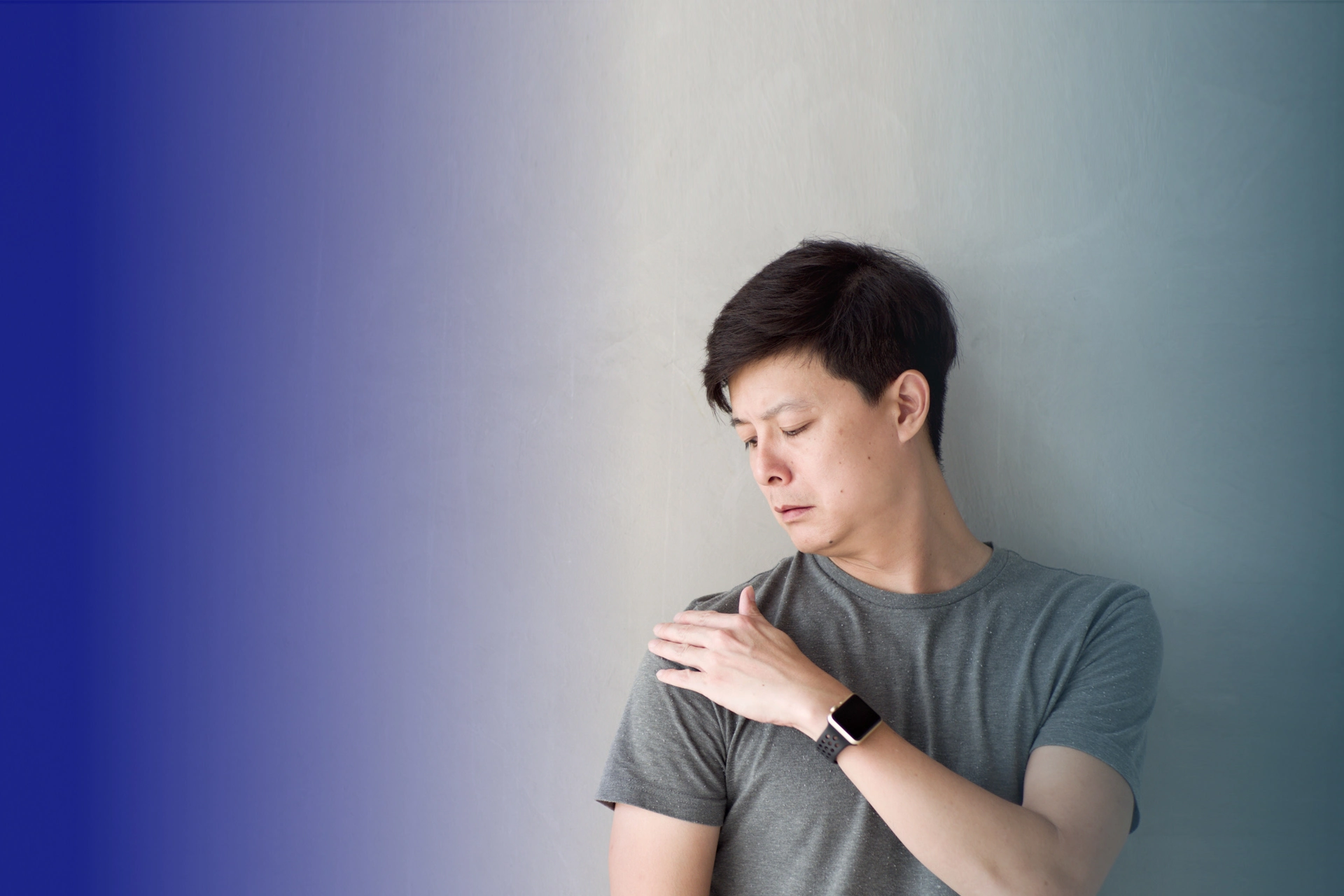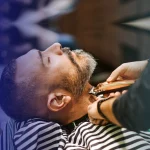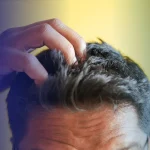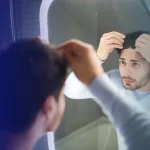
Dandruff is a common skin condition that causes dry skin on the scalp to flake off. It is also known as a mild form of seborrheic dermatitis. Symptoms include skin flakes coming away from the scalp, hair and eyebrows and appearing on the shoulders, as well as moustache or beard dandruff. It can be unsightly or embarrassing, but it is neither serious nor contagious. It is also relatively straightforward to treat. When considering how to get rid of dandruff, there are several options to try, from medicated anti-dandruff shampoo to a consultation with a dermatologist if symptoms persist or a person affected by the condition is worried by how it is progressing.
Dandruff causes the scalp and other areas to become itchy and sometimes red or sore. In infants, it can appear as a scaly, crusty scalp in a condition known as cradle cap. Dandruff can become exacerbated if a person is stressed or has been over-exposed to cold, dry weather.
There are several possible causes of dandruff, including skin that has become too oily or irritated. Meticulous hair and skin care is crucial, as dandruff can also be caused by not shampooing enough, or using the wrong products for your hair and skin type. Oily or sensitive skin can also be more prone to the condition, which can also co-exist alongside psoriasis and eczema. Another thing to watch out for is making sure that every last bit of shampoo and hair products is cleaned out of the hair before drying it, as any residue can cause or exacerbate dandruff in the affected areas of the hair.
Dandruff is most common in younger adults and into middle age. It can be something that remains an issue throughout life, or it can clear up on its own without help from any specific dandruff cure. Men tend to find it harder to get rid of dandruff than women and some neurological illnesses and immune system issues can affect how severe the condition is as well. People who can follow a regular personal hygiene routine, including careful cleaning and caring for the hair and scalp will normally find that the risk of dandruff will lessen, especially if a specially medicated shampoo is used and the hair is carefully checked and combed.
If you are concerned about dandruff and cannot treat it on your own successfully with an anti-dandruff shampoo, it is best to consult your doctor or a dermatologist. They will examine the scalp and let you know the best answer to how to stop dandruff. Your doctor can refer to you a dermatitis specialist if you are concerned about dandruff or have questions that the doctor is unable to answer regarding treatment, causes or risk factors.
Before reaching this stage of needing to seek professional dandruff treatment, however, there is plenty of options you can try to sort the problem out at home. Look online or ask a pharmacy for advice on the best dandruff shampoo for your skin type. The itching and flaking can often be controlled by careful use of such a shampoo. The best anti-dandruff shampoo formula is one that controls the build-up of oil in the scalp and hair follicles. Start with a mild shampoo and see how your hair and scalp react.
You may need to wash your hair several times before you start to see results, or you may need to work out a combination of anti-dandruff shampoos to get the best results for you. If you start to feel increased itching, stinging, redness, rashes or burning from a shampoo, stop using it immediately and seek medical advice. Some of the active ingredients in a typical anti-dandruff shampoo include pyrithione – an antibacterial and anti-fungal agent; coal tar, which acts to slow down the rate of skin cells dying and flaking away from the scalp, salicylic acid, which also helps reduce flaking and other anti-fungal ingredients. If one shampoo stops working after a while, switch to another. Some studies show that the careful use of tea tree oil can also help reduce dandruff due to its antibacterial and anti-fungal properties.
Additionally, there are various lifestyle changes that you can make to lower the risk of dandruff occurring. These include trying to reduce and/or avoid stress; eating healthily with plenty of zinc, vitamin B and certain fats; getting lots of exercise and fresh air; effective personal grooming (including regular showering and washing hair ) and limiting the use of hair styling products that can cause build-ups of residue that can clog pores and exacerbate oil production. If you do need to see a doctor or dermatologist, bring any shampoos or hair and skin products that you are using so they can be checked and more tailored advice given to help you.




